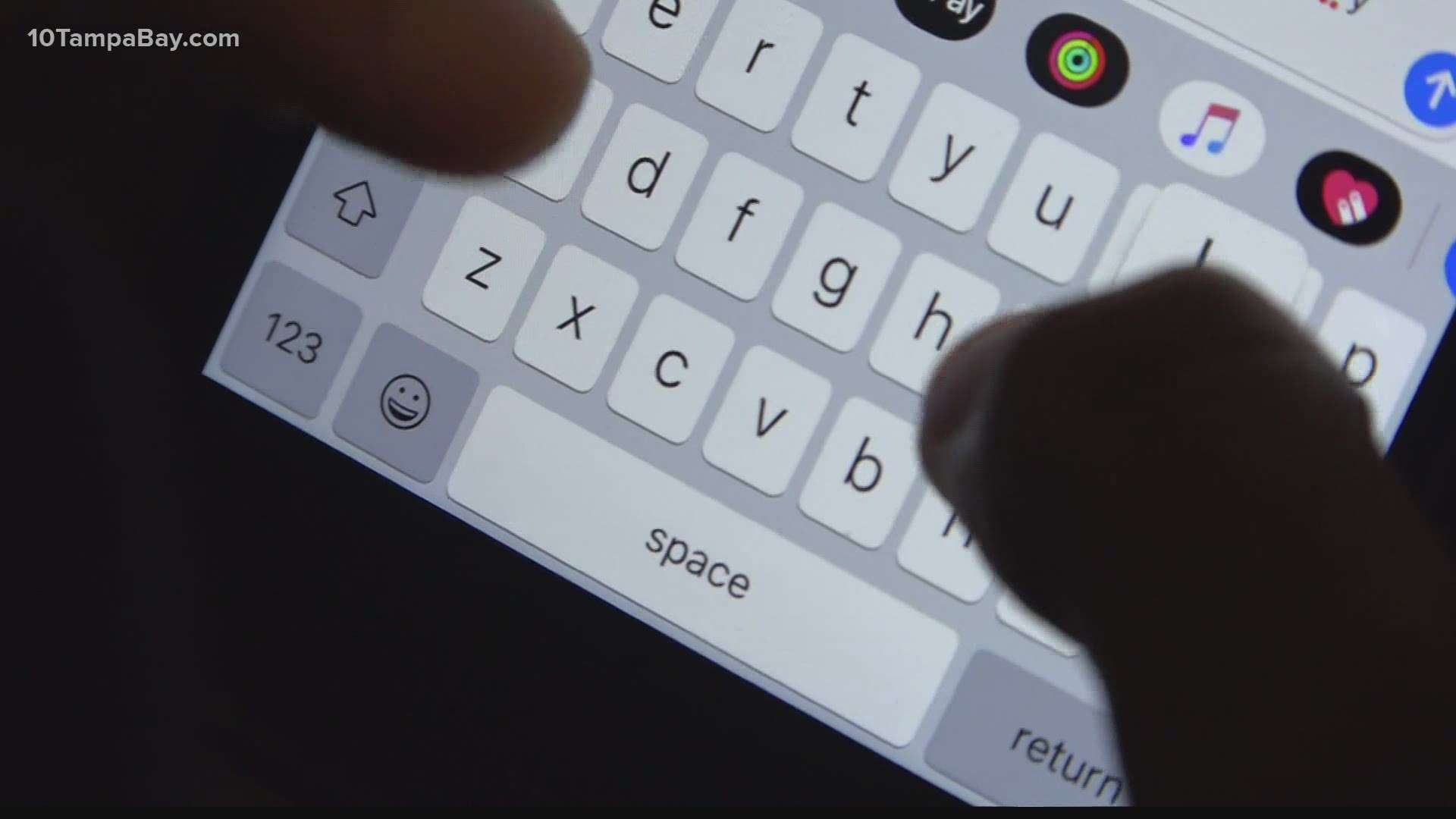TAMPA, Fla. — More people are opting to shop online this year because of COVID-19. With the increase in e-commerce, comes an increase in thieves and hackers trying to scam people out of their hard-earned money.
"We want to make sure people enjoy their holidays as much as they can without getting scammed by a grinch," Hillsborough State Attorney Andrew Warren said.
Warren says this year, there are three types of scams people should watch out for in Tampa Bay.
"Really be on the lookout for fake products, fake websites and fake tickets," Warren said. He says people should be extra cautious because finding and prosecuting the people carrying out these crimes is often really difficult to do.
Fake products happen a lot on platforms like Facebook Marketplace or Offerup and phony websites.
"They'll tell you they're selling you a Playstation 5 but it's just the box they're giving you, so really know who you're dealing with," Warren said.
When it comes to fake websites, he says you should be cautious of links sent directly to you in an email. If something looks off about a website, trust your gut and don't enter your information. Scammers will try and get your login information to gain access to credit card information or banking info.
Another popular scam around the holidays is selling fake tickets.
"We see markets or holiday events come around and people try and sell you fake tickets to the event at a discount, but the prevention in all of these cases is just to know who you're giving your information to," Warren said.
The United States Cybersecurity and Infrastructure Security Agency gave these tips for safe online shopping:
Only do business with reputable vendors. Check website URLs to make sure everything is spelled correctly and there's no malware on the site. Also, look for legitimate contact information.
Make sure your information is being encrypted. Many sites use secure sockets layer to encrypt information. Look for URLs that begin with "https:" instead of "http:" and a padlock icon. If the padlock is closed, the information is encrypted. The location of the icon varies by browser; for example, it may be to the right of the address bar or at the bottom of the window. Some attackers try to trick users by adding a fake padlock icon, so make sure that the icon is in the appropriate location for your browser.
Be wary of emails requesting information. Attackers may try and get information from you by sending an email and asking you to confirm account information. Never click links sent to you in an email. Directly log into the website yourself by typing in the website.
Use a credit card. Debit cards draw money directly from bank accounts. Using a credit card limits the amount of damage an attacker can do if they get your information.
Once you buy your gifts, you need to safely protect your packages from porch pirates. Consider curbside pickup or shipping to a central location for pickup, like a postal office or something like Amazon Locker.
- Debunking common COVID-19 vaccine myths with USF virologist
- Florida hunters have duck stolen by massive gator
- 12 Christmas light displays to see this year around Tampa Bay
- How to save the most money shopping online this holiday season
- Side effects from COVID-19 vaccine likely will be unpleasant, doctors warn
►Breaking news and weather alerts: Get the free 10 Tampa Bay app
►Stay In the Know! Sign up now for the Brightside Blend Newsletter

